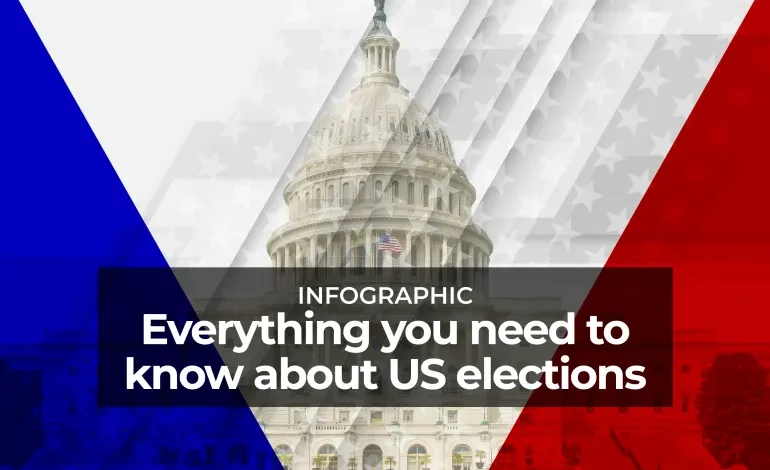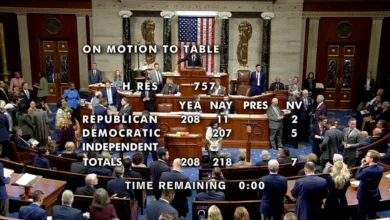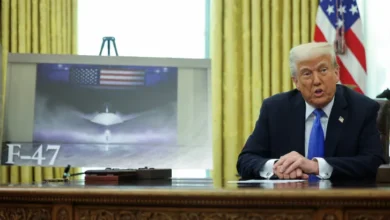US election 2024: Everything you need to know in maps and charts

Nearly 186.5 million Americans are eligible to vote for the November 5 election to choose the 47th president of the United States.
The presidential race is not the only one on the ballot. Americans will also elect people to fill various federal, state and local positions.
The US House of Representatives
Voters across 50 states will elect members of the House of Representatives. There are 435 seats in total and each seat is up for election every two years.
Each state’s allocated number of House members is determined by its population, so if a state loses or gains residents in a census, it stands to lose or gain seats in the House.
There are six non-voting members of the House of Representatives (called either delegates or resident commissioner, in the case of Puerto Rico) who represent the US territories. They do not have voting rights on legislation but have floor privileges and can participate in certain other House functions.
The six territories are:
- District of Columbia
- Puerto Rico
- American Samoa
- Guam
- the Northern Mariana Islands
- the US Virgin Islands.
The delegates are elected every two years, as with the rest of the House, except Puerto Rico, whose representatives are chosen every four years.
The US Senate
There are also 33 Senate seats up for grabs this year, roughly one-third of the 100-seat body, and one seat will be decided in a special election.
In the Senate, each state gets equal representation by having two seats each. It is not dependent on the size of its population the way the House of Representatives is.
In the current Senate, there are 49 Republicans, 47 Democrats and four independents, who caucus with the Democrats:
- Bernie Sanders from Vermont
- Angus King from Maine
- Joe Manchin from West Virginia
- Kyrsten Sinema from Arizona
The vice president is the president of the US Senate. The role includes presiding over Senate sessions and casting tiebreaker votes. Besides voting on legislation, the upper chamber must confirm presidential appointments of cabinet members, Supreme Court justices, other federal judges and ambassadors.
Eight of the Senate elections are considered to be tight races.
- Montana
- Wisconsin
- Ohio
- Nevada
- Pennsylvania
- Michigan
- Arizona
- Texas
Seven of those eight seats are currently occupied by Democrats. Only one race for a Republican-held seat is considered a toss-up.










